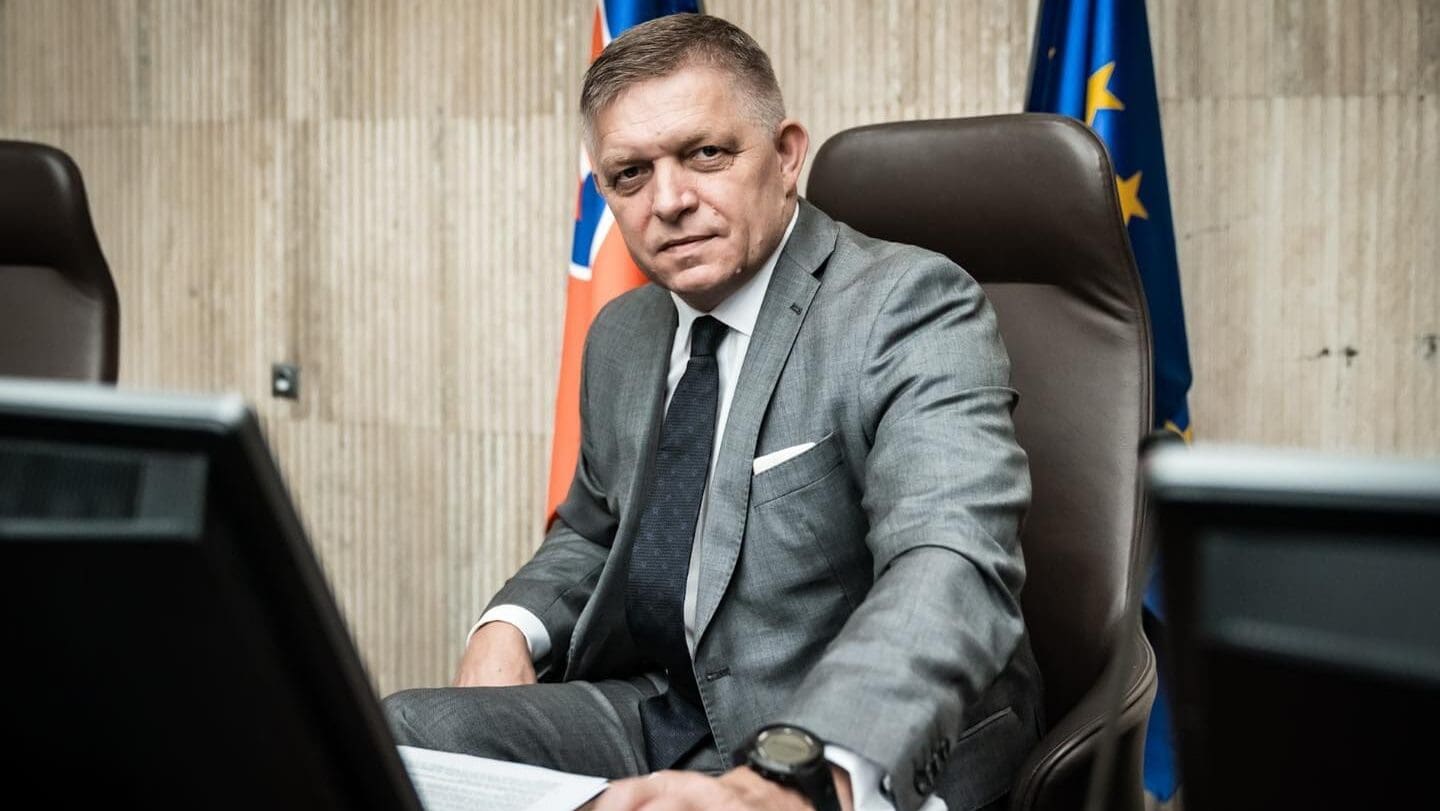
Robert Fico
Photo: Robert Fico on Facebook, 9 July 2024
Slovakia will halt diesel supplies to Ukraine if Kyiv doesn’t restore oil flows from Russian company Lukoil through its territory, Slovakia’s Prime Minister Robert Fico warned on Monday, July 29th.
Oil deliveries to EU member states Slovakia and Hungary through Ukraine by Lukoil were halted last week following Kyiv’s decision to place the company on its sanctions list. Both Slovakia and Hungary condemned the decision which poses a serious threat to their long-term energy security. A third of Hungarian and 45% of Slovakian oil imports stem from Lukoil.
“This senseless sanction only harms Ukraine, Slovakia and Hungary. Russia is practically not affected at all,” Robert Fico said on Monday. The prime minister also emphasised that, unlike the opposition parties, who are constantly preoccupied with bowing to foreign interests, his government is focusing on the interests of Slovakia’s citizens. Robert Fico said he had proposed a technical solution to Ukraine to restore the stopped oil flows but did not give any details.
Hungarian Foreign Minister Péter Szijjártó called Ukraine’s move an unfriendly act by a country that relied on Hungary for 42% of its electricity imports in June. Gergely Gulyás, Minister of the Hungarian Prime Minister’s Office, said the country was exploring “a legal loophole that allows the oil to be transferred by someone not affected by the sanctions.”
Both Hungary and Slovakia have been aiding Ukraine’s war effort with regular diesel deliveries since the beginning of the Russian invasion two and a half years ago. Slovak deliveries account for a tenth of Ukraine’s diesel consumption.
The halt of oil deliveries means Ukraine is in violation of its association agreement with the EU, and Hungary and Slovakia have jointly asked the European Commission to mediate a consultation procedure with Ukraine under the agreement. The Commission said it is ready to do so, but downplayed the seriousness of the situation, saying “there is no immediate impact on the security of oil supply to the EU.”
If the consultation procedure doesn’t yield any results, the parties can request a ruling from an ad hoc arbitration court.
Slovakia’s foreign minister, Juraj Blanár on Tuesday said that the Commission has asked for more information relating to the matter. “The Commission is delaying the issue, but the people of Slovakia and Hungary cannot wait until there is a shortage of oil and fuel. By then it will be too late,” he added.
Brussels may indeed be delaying in helping the two EU member states. According to EU diplomats who spoke anonymously to Politico, the Commission isn’t eager to help Hungary and Slovakia, because other EU member states have found ways to decrease their dependency on Russian oil, while they haven’t. However, even these diplomats acknowledge that Brussels is obliged to act under the association agreement with Ukraine.
While the EU banned the import of seaborne crude oil from Russia after the start of the Russian invasion in 2022, the Czech Republic, Hungary, and Slovakia, who are reliant on Russian energy sources, have been given an exemption from the banned imports of crude oil by pipeline.
Hungary and neighbouring Slovakia have both been harsh critics of EU sanctions on Russia, saying sanctions harm the EU’s economy more than Russia’s. The sovereigntist governments of Budapest and Bratislava have been labelled “pro-Russian” by the Brussels establishment and their liberal political opponents for rejecting military aid to Ukraine and calling for peace talks. Both countries have drawn the ire of Western liberals for their uncompromising sovereigntist foreign policy, their anti-immigration stance, and their aversion to LGBTQ propaganda.
